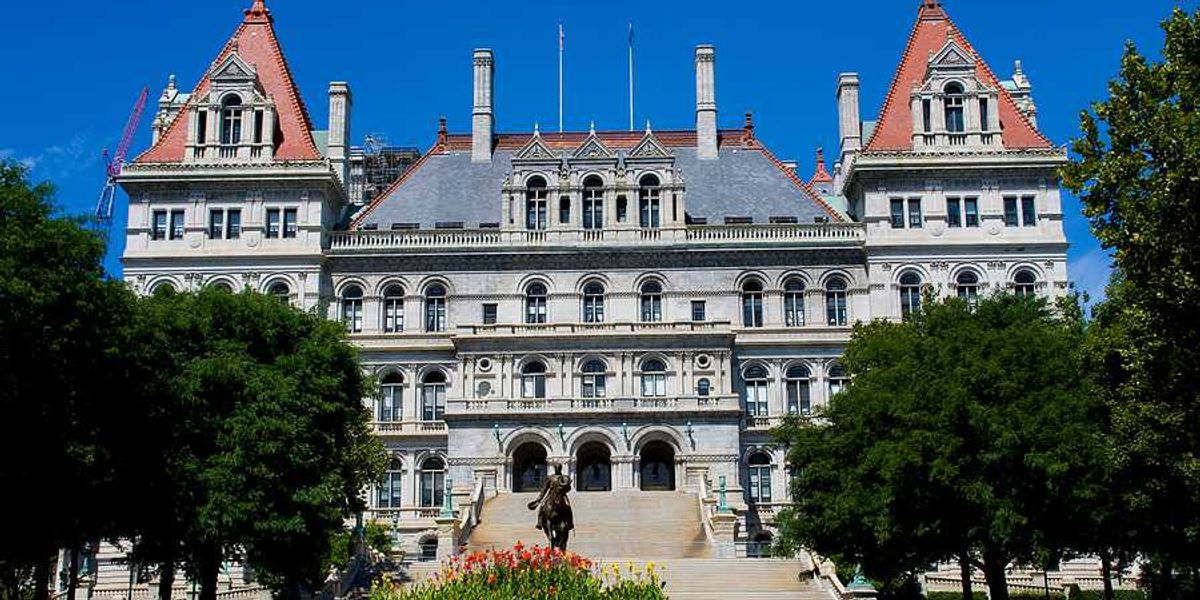president
Harris narrows potential VP picks to climate, energy moderates
Vice President Kamala Harris is considering running mates who balance her climate stance with moderate energy policies.
In short:
- Kentucky Gov. Andy Beshear, North Carolina Gov. Roy Cooper, and Pennsylvania Gov. Josh Shapiro are among Harris' potential VP choices.
- Beshear and Cooper have a history of winning elections in conservative states, which could broaden Harris' appeal.
- Sen. Mark Kelly of Arizona, who has supported water regulation policies, also emerges as a potential pick.
Key quote:
"I love serving the people of Kentucky. The only way I would consider something other than this current job is if I believed I could further help my people and to help this country."
— Andy Beshear, Governor of Kentucky
Why this matters:
Choosing a moderate vice presidential candidate may help Harris appeal to a broader electorate. This strategy could be pivotal in securing critical electoral votes in the upcoming election.
Related EHN coverage:
Biden administration invests $4.3 billion in local climate initiatives
The Biden administration has announced $4.3 billion in funding for community climate projects, aiming to enhance local sustainability efforts and reduce emissions.
In short:
- The Environmental Protection Agency is distributing $4.3 billion to 25 recipients in 30 states for climate action projects.
- Projects include forest management, energy efficiency, and developing local climate action plans.
- The funding is part of the 2022 Inflation Reduction Act, aiming to cut carbon emissions significantly by 2050.
Key quote:
“The grants put local governments in the driver’s seat to develop climate solutions that work for their communities.”
— John Podesta, president’s senior adviser for international climate policy
Why this matters:
This funding will help communities transition to cleaner energy, potentially reducing carbon emissions equivalent to the energy use of millions of homes. It also supports job creation and sustainable development, setting a precedent for future climate initiatives.
California officials see new Mexican president as a strong ally in climate policy
California leaders welcome Claudia Sheinbaum's election as Mexico's new president, anticipating collaboration on climate change and clean energy initiatives.
In short:
- Claudia Sheinbaum, a climate scientist and engineer, is Mexico's newly elected president, offering potential for enhanced cross-border climate cooperation.
- California officials are optimistic about partnering with Sheinbaum on clean energy and environmental issues, given her background and commitment to renewable energy.
- The relationship between California and Mexico has been strong, with agreements in place to address climate challenges such as drought and transportation emissions.
Key quote:
“Having an engineer whose background is working on climate, it’s a big deal.”
— Eduardo Garcia, Assemblymember
Why this matters:
Sheinbaum’s presidency could strengthen California's climate efforts through joint projects, particularly in renewable energy and emissions reduction. Her scientific expertise and focus on sustainable development align with California's environmental priorities.
Mexico elects climate scientist Claudia Sheinbaum as president. How will she lead?
Mexico’s new president, Claudia Sheinbaum, is a left-of-center climate scientist with a doctorate in energy engineering and a background in politics.
In short:
- Claudia Sheinbaum, former mayor of Mexico City, is known for her environmental initiatives, such as electrifying public transport and installing solar arrays.
- Despite her commitment to renewable energy, Sheinbaum supports maintaining oil production and state control of Pemex, Mexico’s indebted national oil company.
- She faces significant challenges, including balancing environmental goals with economic demands and addressing issues of poverty, migration, and crime.
Key quote:
"Claudia is an environmental scientist and unlike her mentor, AMLO, believes in decarbonization and in boosting renewables."
— Shannon O’Neil, Mexico specialist at the Council on Foreign Relations
Why this matters:
Mexico's election of a climate scientist as president highlights a potential shift toward more sustainable energy policies.
Indonesia's new president faces scrutiny over potential environmental impacts
Amid concerns of intensified deforestation, Prabowo Subianto's election as Indonesia's president raises environmental alarms as he proposes expanding nickel mining for economic growth.
In short:
- Prabowo Subianto, a former military figure, was elected with plans to boost economic growth through increased mining and industrial development, despite potential environmental costs.
- Indonesia, a major nickel producer for electric vehicle batteries, faces ecological threats as mining expands into rainforest areas.
- Environmentalists express concerns over Prabowo's historical environmental and human rights record, fearing increased deforestation and ecological degradation.
Key quote:
“By processing our natural resources domestically, I’m optimistic that we would be able to witness double-digit economic growth.”
— Prabowo Subianto, President-elect of Indonesia
Why this matters:
Prabowo’s push to expand nickel mining operations taps into global demand for clean energy technologies but raises serious environmental issues. The extraction and processing of nickel are energy-intensive and can lead to severe environmental degradation, including deforestation, soil erosion, and contamination of water sources with acids and metals. The ecological fallout could affect not only local biodiversity but also the livelihoods of communities dependent on natural resources.
As nations worldwide strive to combat climate change by transitioning to renewable energy, they find themselves grappling with how to avoid repeating the mistakes of 150 years of fossil fuel production.
Election rematch could shape US science policy for years
The upcoming election between Donald Trump and Joe Biden could drastically alter the future of environmental, public health, and international scientific collaboration policies.
Jeff Tollefson, Natasha Gilbert, Max Kozlov, and Mariana Lenharo report for Nature.
In short:
- Trump and Biden offer starkly different visions for climate change action, with Trump aiming to roll back environmental regulations and Biden pushing for clean-energy innovation.
- Public health funding and policy approaches also divide the candidates, with Biden supporting increased funding for health research and Trump's history of attempting to cut it.
- Immigration and international collaboration could see changes, impacting scientists and research globally, with each candidate's policy having significant implications.
Key quote:
“It’s a trope to say that every election is critical, but this election is particularly stark in the two paths that it presents for the United States.”
— Alexander Barron, environmental scientist at Smith College
Why this matters:
This election's outcome could significantly influence the United States' approach to critical issues like climate change, public health, and international scientific collaboration. The direction taken not only affects the nation's health outcomes but also its position on the global stage in tackling some of today's most pressing challenges.
Opinion: House Speaker Mike Johnson’s climate change playbook — deny the science, take the funding.
Cornel West's presidential ambitions and environmental vision
Cornel West announces his presidential run as an independent candidate, focusing on climate change and social justice.
In short:
- Cornel West, a renowned academic, launched his presidential campaign as an independent, forming the Justice for All Party.
- His platform emphasizes "Green Reconstruction," aiming to address climate change while promoting racial and economic justice.
- West criticizes current policies for prioritizing profit over people's needs, advocating for a transformative approach to environmental and social issues.
Key quote:
"We just need more visionary thinkers who can bring together those in the ecological movement with the anti-racist realities that we’re dealing with."
— Cornel West, presidential Candidate
Why this matters:
Dr. West's candidacy brings a unique blend of environmental advocacy and social justice to the political arena. His focus on "Green Reconstruction" highlights the intersection of climate change with racial and economic inequalities, resonating with a growing demand for comprehensive and inclusive environmental policies. This approach could significantly impact public discourse on climate action and social equity.
COVID-19 and Black Lives Matter protests threw underlying systemic inequity magnifying climate change impacts into sharp relief, wrote Douglas Fischer in 2021.









